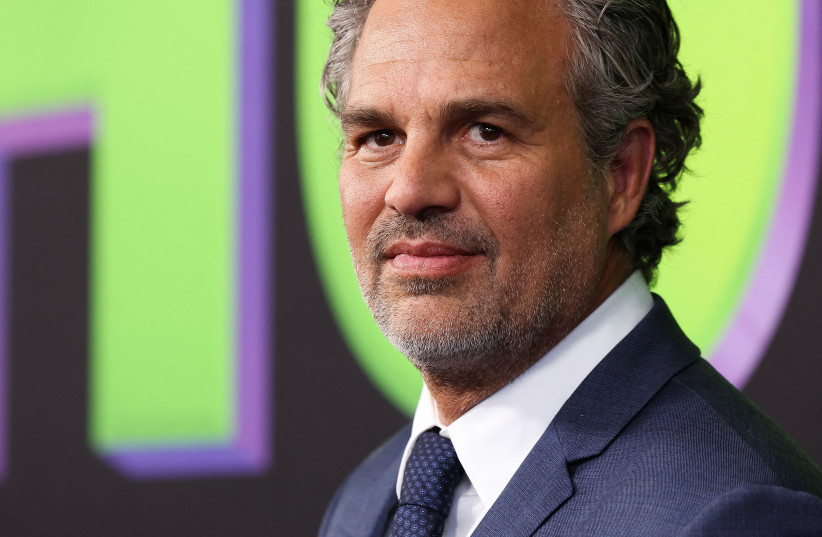A-list actor and anti-Israel activist Mark Ruffalo made headlines again this week for calling on the UN to not adopt the International Holocaust Remembrance Alliance’s (IHRA) definition of antisemitism. Before discussing the merits of the definition and the place it has in public discourse I want to state this clearly:
Mark, you have absolutely no right to tell Jews what they consider hateful. You are not Jewish and therefore have no insight into what we consider as antisemitic. So please, keep your mouth shut.
The definition
The IHRA, an international organization working solely on Holocaust-related topics, released in 2016 a working definition on antisemitism. It is: “Antisemitism is a certain perception of Jews, which may be expressed as hatred toward Jews. Rhetorical and physical manifestations of antisemitism are directed toward Jewish or non-Jewish individuals and/or their property, toward Jewish community institutions and religious facilities.” The definition, not legally binding by any means, was then clarified to include hate speech that is unfairly directed towards Israel as the nation-state of the Jewish people, accusing Jews as being responsible for certain events, Holocaust denial, and most importantly, denying the right of the Jewish people to self-determination in their Homeland. The definition was quickly adopted by most Western countries.

Ruffalo and many anti-Israel activists have focused on the definition as a point of contention with what they perceive as attempts to silence the voices of those advocating for Palestinian rights in Gaza, Judea and Samaria. They claim that by labeling anti-Israel speech as antisemitic, any speech against Israel’s actions with respects with Palestinians will be considered as hate speech. This is nowhere close to the truth.
Is anti-Zionism antisemitism?
The short answer is yes. Why? Just look at the definition of Zionism: “Zionism is the movement for the self-determination and statehood for the Jewish people in their ancestral homeland, the Land of Israel.” In essence, if you are anti-Zionist, it means you are against an indigenous peoples right to live and prosper in the ancestral homeland. Based on every objective fact, from artifacts to primary sources to basic history, the Land of Israel has been the home of the Jewish people. Notwithstanding the religious tradition, Jews lived in what was then Judea until their expulsion by the Romans in 70 CE. For 2,000 years after, a Jewish presence always remained in the Land, with millions of Jews praying and dying daily for the dream of returning to their home.
Finally, in our generation, this happened. It happened through sheer determination by idealistic Jews from across the spectrum who recognized that there was no place for them other than in their ancestral homeland. They fought off the greatest empire at the time, the British, and established a modern state in a barren desert, blooming it and building it into the great nation that the world knows today as Israel. It was, bar none, the greatest counter-colonial movement in history.
Criticism of Israel
Contrary to what Ruffalo and his racist buddies try to claim, not all criticism of Israel is antisemitic. Israel is a flourishing democracy with a wide range of opinions. Sure, not everyone in the country agrees with the policies of the government on all issues, including the conflict with the Palestinians. Yet the issue is that typical criticism of Israel’s treatment of Palestinians often does cross the line of antisemitism.
It is clear that we can do better in our conflict with the Palestinian people, both because the current situation is not sustainable but also because it is our duty as a people to seek justice in all our affairs. However, when anti-Israel activists level claims calling Israelis “colonialists” or telling them to “go back to Europe,” it is touching on a part that is both foreign and plain hateful. For one, an indigenous people cannot be colonialists in their own land. This should be clear from the fact that despite all the terror, war and violence that has come upon Israel and Israelis, they never once debated leaving Israel - it’s our only land. And telling us to “go back to Europe” is such a distortion of reality that it’s sad it needs to be addressed - back in Europe, where we were forced to live, we endured 2,000 years of torture, murder, burning at the stake, culminating the Holocaust. We are not “going back to Europe.”
Don’t tell us what is hateful
I will end the way I began: Mark, you have no right to tell us what is hateful to Jews. You are not a part of our collective and you do not feel the generational pain and hatred we feel. Let me ask you: would you ever tell a Black person that something they believe is racist is not racist? My guess is that you wouldn’t. That’s because you are not Black, so you have no right to tell them what is racist. The same applies here; you are not Jewish and have no connection to the Jewish people. So please, keep your mouth shut.
The writer, a Jerusalem Post staff member, is an entrepreneur and Hebrew thinker, known as Osher in Hebrew. A recent Oleh, he also helps oversee the start-up ecosystem in Jerusalem with Made in JLM. On Twitter: @troyfritzhand.
